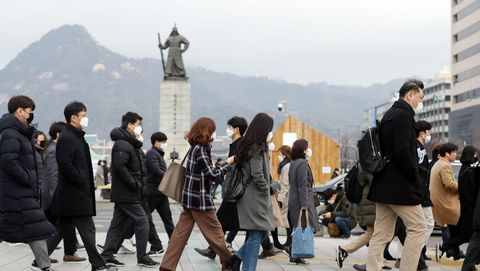How did Korean democracy tame Covid-19?

South Korea contained Covid-19 by placing its Korean Center for Disease Control (KCDC) at the heart of the health crisis response.
By law, the KCDC is mandated to manage the totality of health operations and enjoys for the purpose of its mission exceptional executive powers, with authority over the police and judiciary. All actions against the pandemic (screening, tracing, isolation, hospitalisation, etc.), as well as all the necessary administrative and legal tools, are thus placed under a single management. This remarkable cohesion has enabled a very rapid and vigorous response. Finally, currently under the direction of a woman, a Professor of medicine who had experience in fighting the previous epidemic, the KCDC enjoys a relatively independent authority recognized by all, as it is based on scientific knowledge, professionalism as well as transparent actions and communication. Being perceived as a politically independent body, its action has remained away from one-sided political criticism. The rapid and massive implementation of the now well-known screening-tracking and isolation doctrine was made possible by this original legal and political context, not forgetting the mobilization of the health industry for the design of the tests in the first half of January, approved for marketing on February 4, i.e. 14 days before Covid-19 explodes in South Korea. The tracing of persons only concerns individuals who are proven to be carriers; it is strictly retrospective and only concerns the two weeks prior to the test. Apart from the telephone health follow-up, twice a day, of any person who tests positive during two weeks of isolation, there is no procedure for tracing, neither particular nor general. The database, hosted outside the government, is subject to a strict access control; all requests for information are recorded and will be destroyed at the end of the Covid-19 crisis. This April 15, 2020, the day of legislative elections under high health protection, no lifting of the measures in force has been announced. The school system is completely closed, and courses are gradually being switched to online or television. No re-opening is planned, and tens of thousands of digital tablets have been given to the children of families who have no internet accesses. As long as a vaccine or therapy do not exist, the KCDC will continue its role of pilot and keep its exceptional powers. To prepare for life during this waiting period, the Korean government is working with the companies and the education system in order to imagine more acceptable temporary and consensual modus vivendi yet refusing to compromise with the anti-Covid-19 doctrine.
The following is an account of a personal experience of the epidemic in South Korea. From first-hand documents and witnesses collected on site, it provides an in-depth analysis of the epidemiological, legal and medical tools implemented against Covid-19, as well as prospects for "exit". The author is a French researcher who, after his work at the Institut Curie (Paris), has been pursuing his research for almost five years at a Korean public university.


